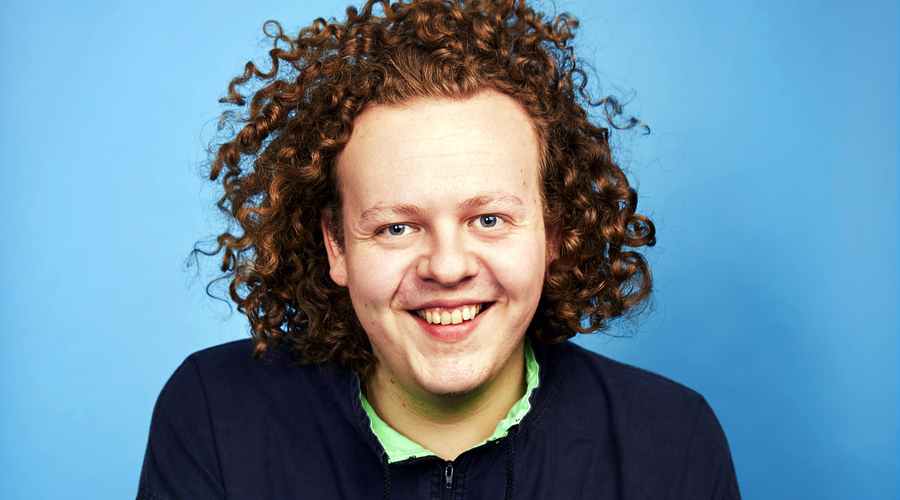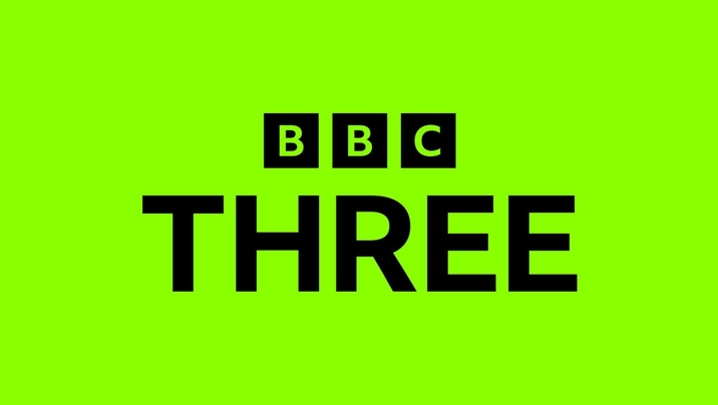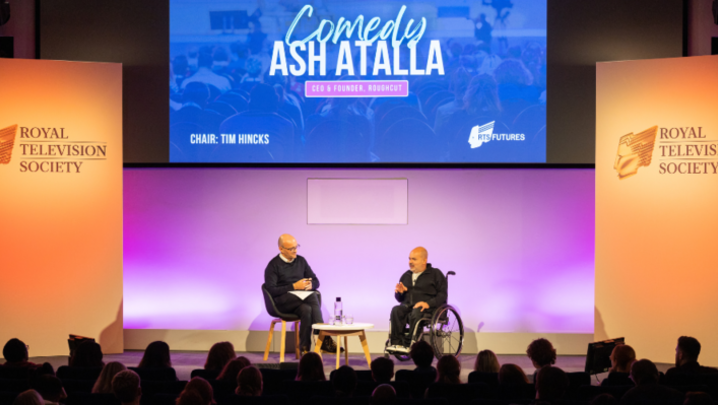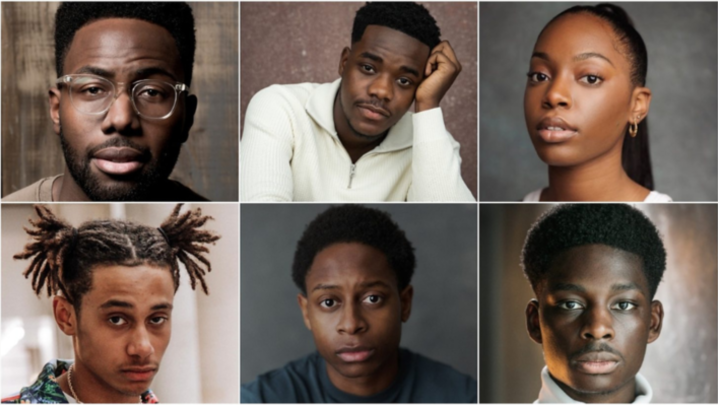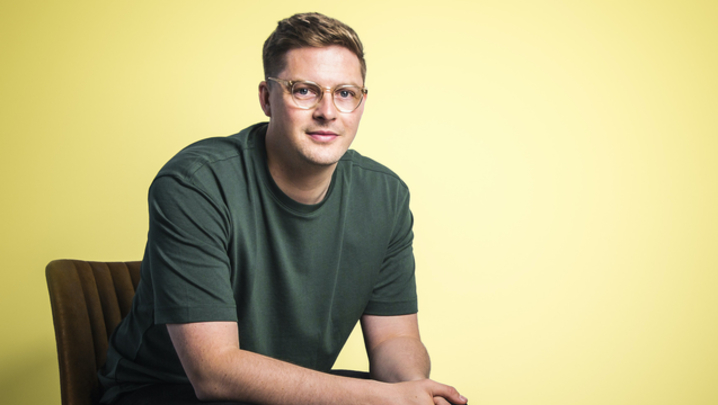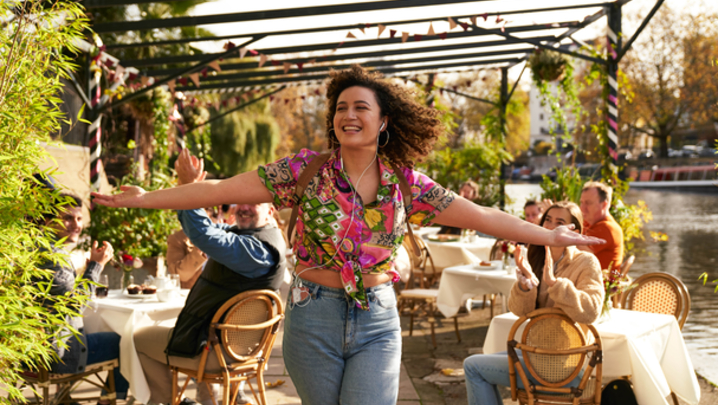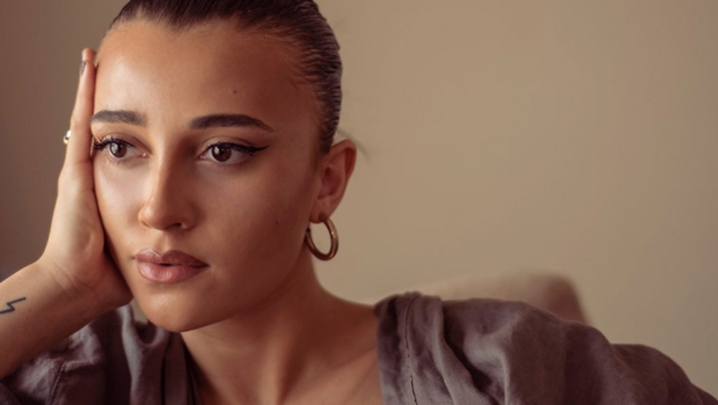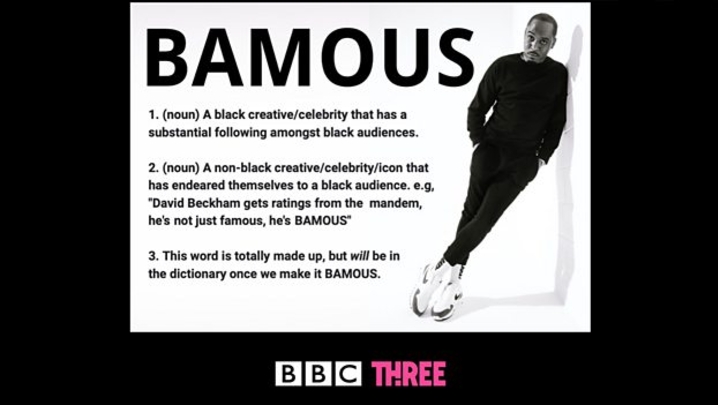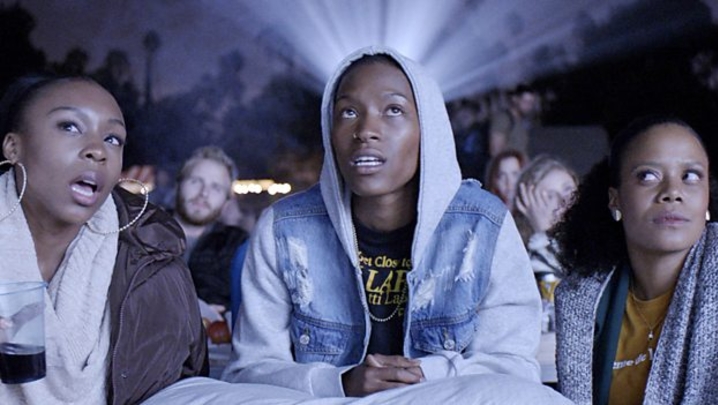Only 23, and with something of a specialism in grief, comedian, CALM ambassador and now BBC Three documentary maker Jack Rooke is on the hunt for a better way to deal with mental illness.
“I think in the past two years, the whole conversation [about mental illness] has become saturated with the importance of talking – which I think is important, but the conversation has got to progress beyond that.”
His show, Happy Man, launched on BBC Three last week, and sees the comedian try a range of approaches to tackling depression, including cold water swimming (“one of the worst things I have ever done”), running, life modelling (“scary”) and drag.
“I really wanted the series to explore the way that men can take their mental health into their own hands outside of talking, and do things that are quite fun and life-affirming, but also have a basis in tackling depression,” Rooke explains.
The show, he says, is about finding “the freedom to be whoever you want to be, and not live your life by the limitations that infrastructurally are placed upon you.”
Happy Man is inspired by the loss of Rooke’s friend Olly, who took his own life two years ago.
Having lost both his dad and nan at an early age, Rooke is familiar with grief, but Happy Man, he says, “is very much inspired by a different kind of loss, one where it’s been somebody’s choice to take themselves away, one where he [Olly] is part of a wider statistic of young men that unfortunately are taking their own lives.”
Suicide is the single biggest killer of young males under 45 in the UK, with around three-quarters of all suicides being males.
“I really wanted the series to be a real celebration of [Olly] at every angle. I didn’t want… his whole identity to be defined by suicide.”
As such, the show was recorded on Olly’s 30th birthday in front of a live audience in The Roebuck pub in London where Rooke and Olly used to perform live poetry.
In his hunt for an alternative remedy to mental illness, Rooke spoke to young men from across the country who are taking their mental wellbeing into their own hands; men like Neil from Leeds, whose drag alter-ego Raven Mandella allows him to “creatively play with what he thinks beauty is, what he thinks freedom is, and what he thinks fun is.”
It is the limitations that young men face that are leading to such high suicide figures among males, he says.
“What Olly really suffered with was a lot of limitations of his own ambitions as a young person. He struggled with being limited by his mental illness, limited by the fact that he couldn’t afford to live in London any more, limited by the fact that he couldn’t afford to pursue the career he wanted, limited by not having the money, limited by so many factors that are outside of his control that I think,” says Rooke, “sadly culminated in the reason why he is not here.”
A solution is far easier to identify than it is to achieve, suggests Rooke.
“We have a culture that keeps on saying ‘me’ before ‘we’. A massive remedy to the mental health issue is if we start saying ‘we’ before ‘me’. Just being a little more observant to people when they’re in times of struggle and offer that helping hand a bit more,” he explains.
The government too, needs to do more. “For the last three years, the government have pledged mental health increases, and then when you look and the reports come out, they haven’t met any of those pledges. I can understand one year – OK, you didn’t meet a quota, welcome to the world – but when it gets to three years of failing to meet your £25m increased mental health budget spend…”
“You’re just encouraging [people] to open up and, if anything, exacerbating the problem when the services are cut and unavailable to certain men in this country.”
The show uncovers projects that have developed to fill that gap, such as the Camden Black Barbers Collective. Barbers in five shops in Camden and Kentish Town have been Mental Health First Aid-trained to help their customers open up about the mental health problems.
“The importance of community and the importance of fighting for community” is at the core of Happy Man, and Rooke calls for “challenging government[s] when they are doing things like cutting mental health units, cutting mental health support groups and really savagely depleting the services available to people around the country, especially in areas where they are more vulnerable.”
At its heart, the series is about the things that individuals can do to look after their own mental health. As a grinning Jack Rooke cries out of the side of a white van: "Hi! What do you do to stay happy?"
For Rooke, the death of his friend Olly was “the worst thing I will ever go through.”
“I now have to live a life for somebody that is so brilliant, and so amazing, and who didn’t, for a moment, see that.”
“And that is why ultimately I am really really happy about Happy Man: because it is something that Olly would think is really cool. [Although] he would totally take the piss out of me for thinking I was Anneka Rice running around and doing all these challenges.”
Rooke laughs.
“He’d be like ‘You’re like a big fat gay Anneka Rice’, and I’d be like ‘Yeah, I am…’”
For professional advice on suicide prevention in young people, if you are concerned about someone who may be suicidal or are at risk yourself, contact Samaritans on 116 123.

